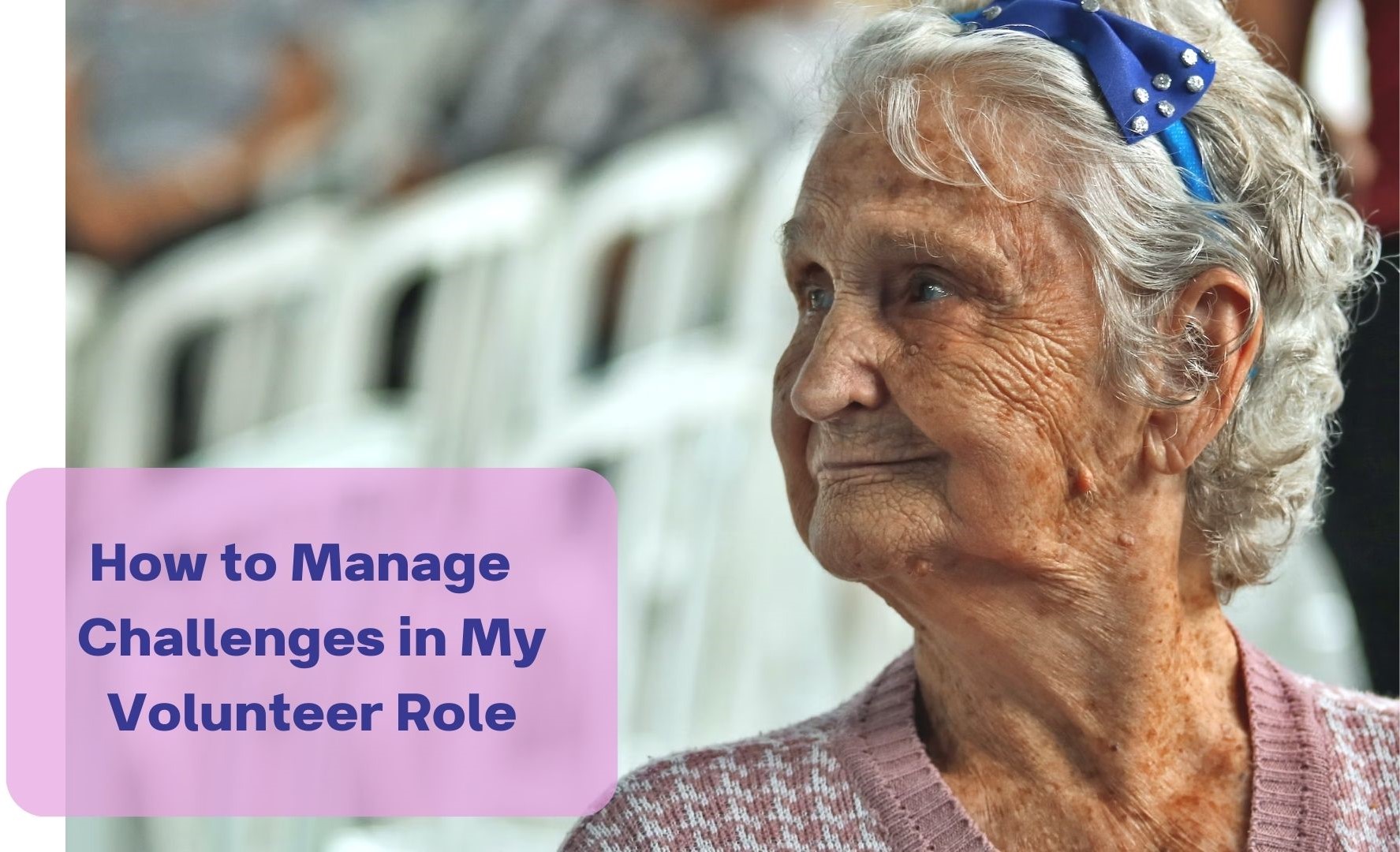

So, you’ve encountered a difficulty — it’s more common than you may think.
First of all, it’s so wonderful that you’ve stepped up to volunteer, to make the world a better place, and that you’re actively volunteering! Secondly, it’s so important that you’ve selected this article to seek solutions, and not just walked away from a difficult situation.
Not knowing the specifics of your situation, we’ll endeavour to help you by listing some common concerns and their solutions that will hopefully be helpful to your specific situation.
To try and begin on a positive note, we are going to start with the solutions first. If you wish to scroll down further for a list of possible challenges you may be experiencing, feel free to do so.
Some of the solutions to the concerns you are experiencing could be simple fixes such as:
- Getting more clarity around what your role is supposed to be
- Getting more support in and for your role
- Receiving more training
- Getting more flexibility built into your commitment (to accommodate appointments or travel or health issues or other reasonable circumstances)
- Changing the volunteer role or task, you are doing, to something else
- Getting someone to help provide translation services
- Moving to a new area or more accessible space or different building (if the organization has options) and/or working with a new team.
Going Deeper: Some possible problem-solving solutions for you to consider:
- There are some challenges that can be addressed by speaking with someone involved with your specific challenge and sharing our feelings, thoughts and ideas with them.
The book Crucial Conversations: Tools for Talking When Stakes Are High says, among other things related to day-to-day conversations that affect our lives, “opinions vary, stakes are high, emotions run strong,…the conversations we have can have a huge impact on the quality of our life.” Or in this case, the quality of our volunteer involvement. The book also says, “we often back away from crucial conversations because we fear we’ll make matters worse…we tend to avoid tough conversations.”
All this is said here to highlight that having an important conversation is not always easy and many of us simply avoid them. However, a conversation about what is troubling you in your volunteer role, with someone associated with your role (your supervisor, their supervisor) could be the best answer to your challenge.
- Another option is to speak with a trusted person you know personally who might:
- help alleviate what you’re going through just by listening to you and, while you speak with them, you come up with your own answers, or
- offer some suggestions that you may not have thought about on your own.
- Another option is to contact a Volunteer Centre and speak with a professional who might be able to offer solutions. Please see below for a link to our article “About Volunteer Centres.”
- Never underestimate the power of the pen. Writing things down — our challenges and our feelings and what comes to the top of our mind — helps us process things. Wonderfully, our own hands can and do surprise us and help us work things through or come up with solutions on the page! Try it, you’ll likely be amazed. And now you know why people who journal love to do it.
The key is to seek solutions and positive answers and outcomes rather than focusing only on the challenge itself and staying on the negative parts. If you find someone to talk with at the organization or personally, who just confirms your difficulty but who doesn’t help to bring you to a solution then maybe try someone else to talk with.
Some of the possible broader-scope volunteer concerns you and other volunteers may be having:
- My volunteer role or tasks do not match my expectations or needs.
- I’m having a problem with a person or group or the organization as a whole.
- My role is too difficult or too easy.
- I’m bored.
- I’m overwhelmed. I might have taken on more than I can handle.
- I feel directionless.
- I not physically able to do my role/parts of my role.
- I don’t think I can keep this role up for as long as they want me to.
- My shift is too long / short.
- I’m experiencing a language barrier.
- I’m experiencing a culture barrier.
- I need more breaks.
- My life or residence or physical or health circumstances have changed in some way.
- I don’t feel or see the impact I’m making. Am I making a difference?
- I want to try something different but don’t know where to start.
- I’m feeling too isolated.
- I’m spending too much time with others.
- I’ve noticed something that doesn’t sit right with me.
- I’m having trouble getting to the place I volunteer.
- I need to volunteer closer to home.
- I can’t afford to pay for transportation to get to the place I volunteer.
- The transit system drop-off is too far from the place I volunteer.
- I do not understand the technology I am to use in my role.
- I don’t feel like I’m learning anything.
- I don’t feel like I’m being able to share my skills and abilities.
- Something doesn’t feel right. I’m not sure what it is.
- I don’t like what I’m doing.
- I don’t feel supported.
- I don’t feel appreciated.
- I’m feel belittled and disrespected.
- There are too many politics here.
- This place is just too disorganized.
- Can I switch roles if I don’t like where I am?
- I have questions but there’s no one to help me.
- I’m not challenged / I’m too challenged.
- I’m frustrated with…
- I’m unhappy with…
No one expects or wants any volunteer to suffer, be unhappy or frustrated. And no one wants volunteers to just walk away from their role when solutions can be realized and challenges addressed.
We realize that not everyone is comfortable asking for accommodations or addressing challenges, but we hope this document helps you at least know you are not alone.
You are worth every effort it will take to keep you contributing as a volunteer.
Your community will thank you! You body and mind will reward you! You will be happy!
For more helpful information please look at our articles:
- “About Volunteer Centres” found HERE
- “What to Expect from the Organization where you are a Volunteer” found HERE
- “Your Responsibilities as a Volunteer” found HERE
- “Ageless Access Older Adult Friendly Spaces” found HERE
- “What to Expect from an Organization when I want to Volunteer” found HERE
- “What to Ask an Organization Before Volunteering” found HERE


